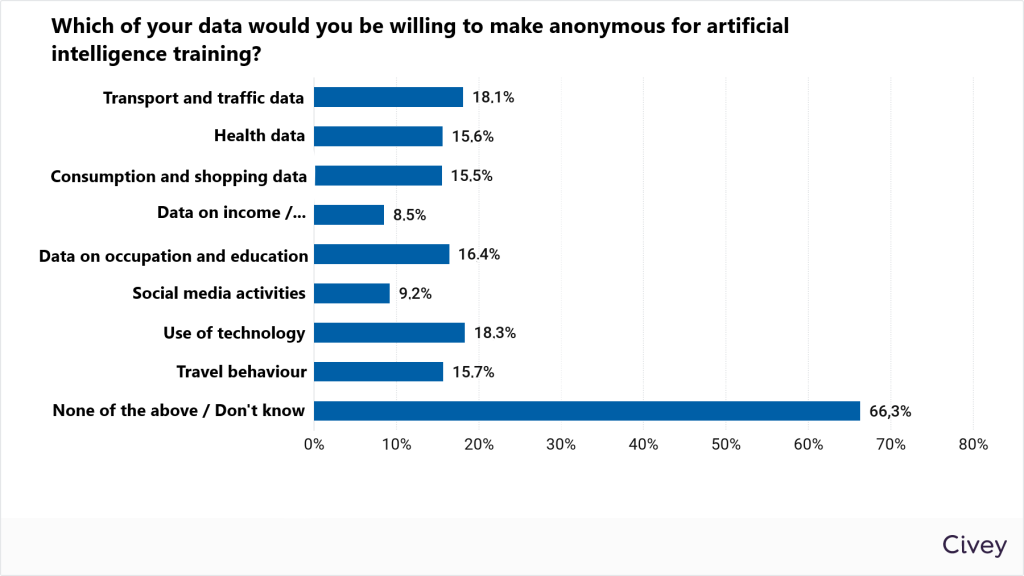eco Chair of the Board Süme: “The German federal government and industry must create a trustworthy data ecosystem in order to maintain the future viability of Germany’s digital location”
- Two thirds of Germans (66.3 per cent) do not want to make their data available for the training of artificial intelligence, even in anonymised form
- Around one in five would provide data on their own technology usage, as well as transport and traffic data
- Artificial intelligence causes uncertainty among citizens in Germany
Artificial intelligence (AI) can optimise production processes in the economy and industry, avoid traffic jams, and even save lives by detecting cancer at an early stage. To improve this in the future, AI models need to be trained with a large amount of data. However, people in Germany are only willing to provide their data anonymously for the training of artificial intelligence to a limited extent. Nevertheless, 18.3 per cent of Germans would provide data on their technology usage, 18.1 per cent on transport and traffic data. Data on travel behaviour would be shared by 15.7 per cent of Germans and health data by 15.6 per cent.
“The visionary use of technologies and applications based on artificial intelligence not only offers enormous economic potential, but can also help to improve living conditions for all of us in many areas. These benefits need to be highlighted more strongly. In addition to digital infrastructures, services and platforms, data pools are also needed to leverage this potential. The availability of high-quality data and the standardised and legally compliant handling of data is essential for all data-based business models. We need a trustworthy data ecosystem that also guarantees citizens the necessary transparency and security so that they consent to their data being used to train AI applications,” says eco Chair Oliver Süme. The German federal government now has an urgent duty in this regard.
“The German federal government’s Data Strategy provides a good basis for this. While some projects from this strategy – such as the Data Institute, the Federal Data Protection Act or the Mobility Data Act – have at least already been initiated, we now urgently need more speed in data policy,” Süme continues.
*On behalf of eco, Civey surveyed around 2,518 adult German citizens between 12 and 13 February 2024. The results are representative. The statistical margin of error for the overall results is 3.2%.





